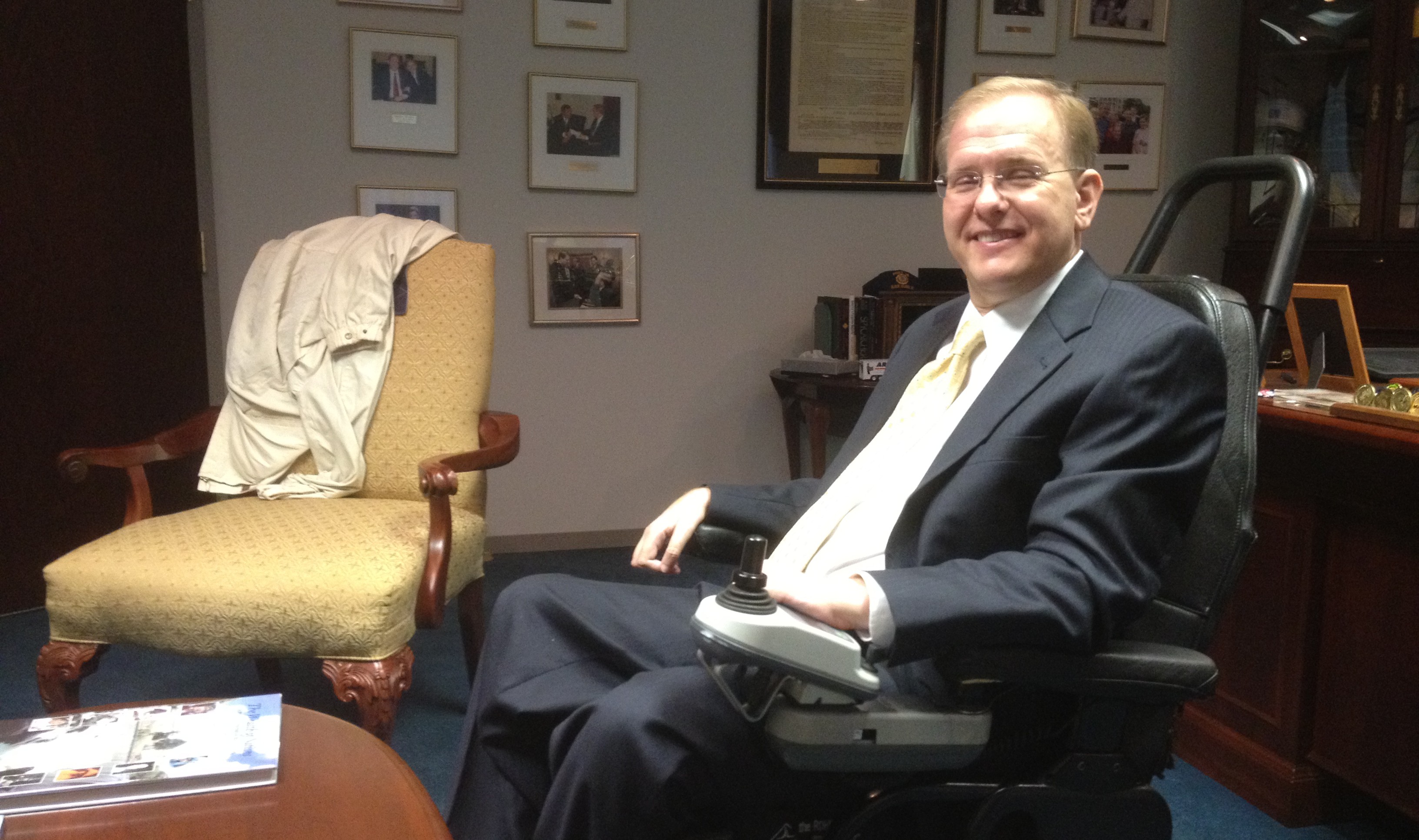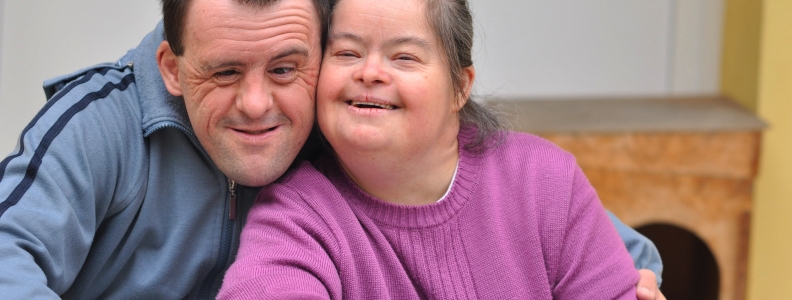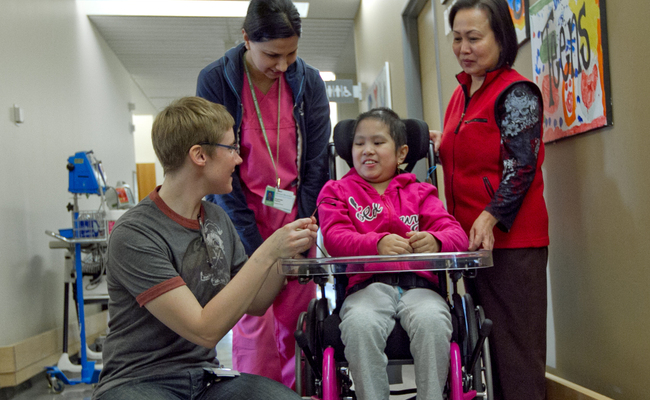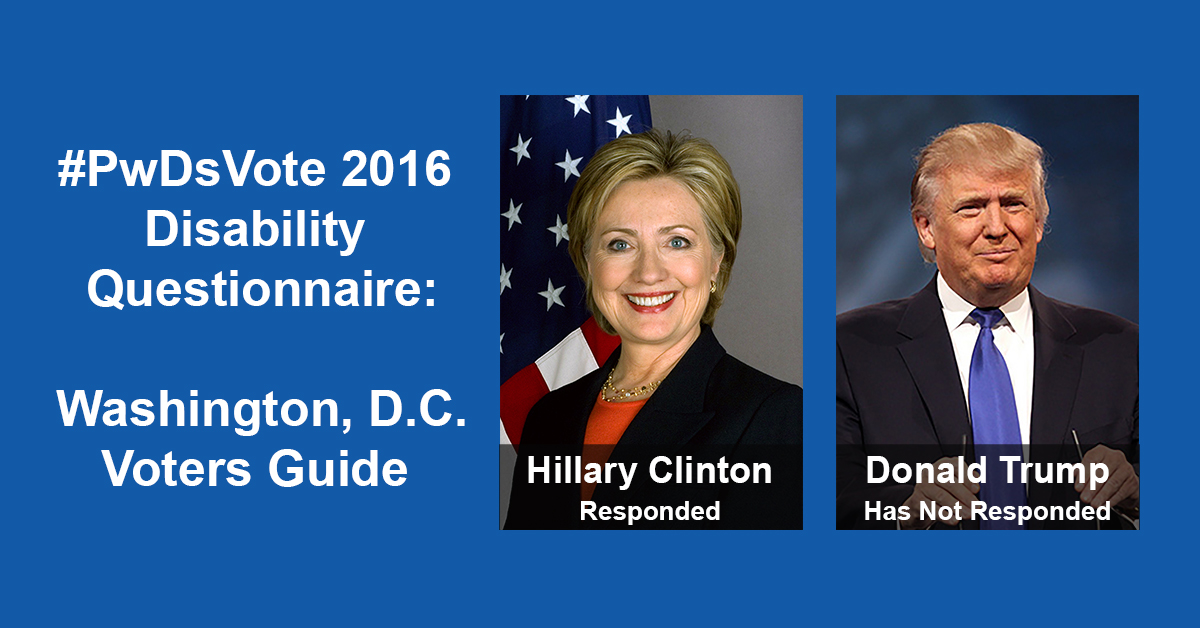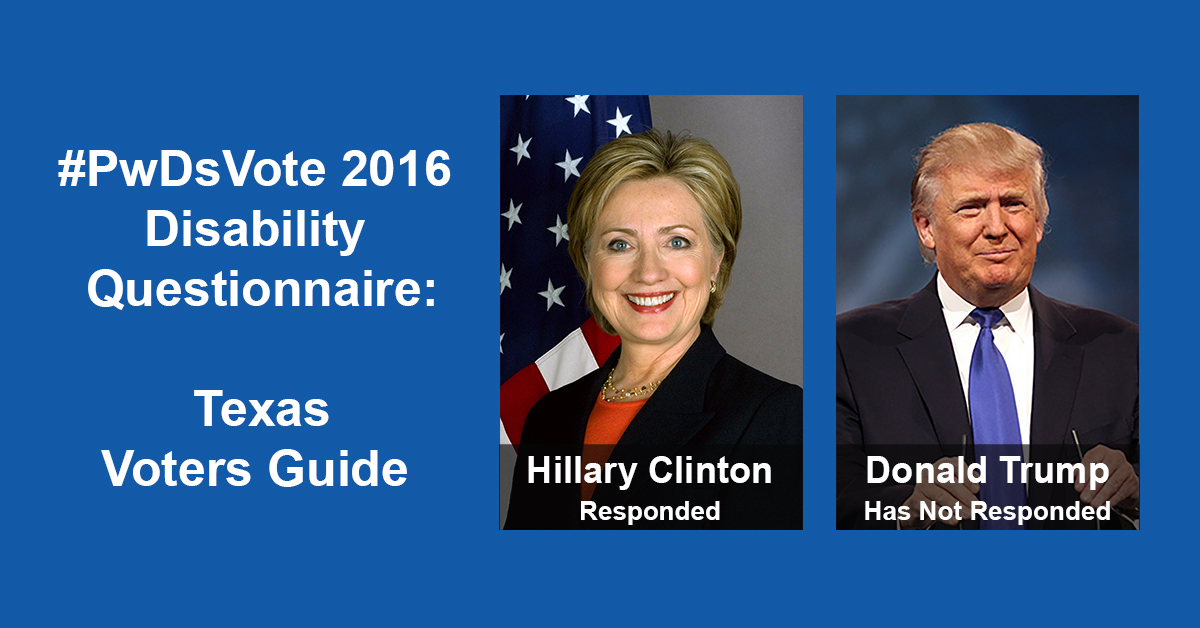Washington, Nov. 2 – A key topic of conversation in the political campaign is the Affordable Care Act, known to many as “Obamacare.” One of the goals of the Affordable Care Act was to ensure that people with pre-existing conditions (like a disability) are able to afford health insurance and receive proper care. The Affordable Care Act made it illegal for health insurances to not accept a person regardless of pre-existing conditions. The Arc of Opportunity has additional information for individuals with disabilities seeking health insurance.
As part of the #PwDsVote Disability Questionnaire, the nonpartisan, nonprofit disability organization RespectAbility asked candidates running for president, senate or governor about their plans to address these issues. While many had plans regarding healthcare of people with disabilities, several had specific plans for healthcare reformations of people with disabilities. Every candidate was given an equal opportunity to address these issues and if they are not listed, it is because they declined to answer.
Of the one in five Americans with a disability, 13.3 percent lack any health insurance as of 2014. Furthermore, individuals with disabilities are more likely to receive poor health care plans.
There are several factors leading to people with disabilities having no or subpar health care – from inaccessible physical environments to social stigma and expectations. Many face the lack of inaccessible medical equipment and trained health professionals prohibiting them from getting fundamental primary and preventative care from their doctors. For example, people with physical disabilities may not be able to transfer to high examination tables. Individuals who are deaf face a language barrier with limited available ASL interpreters.
Even without a disability creating an access issue, many people with disabilities are not able to afford the growing costs of healthcare, even with new insurance options that cover people with pre-existing conditions. In fact, 15 percent of people with disabilities have not seen a doctor because it was too costly to do so, compared to just six percent of the general population.
While six percent of people without disabilities report they are in fair or poor health, 31 percent of people with disabilities report fair or poor health. The statistics are even worse for people with multiple minority statuses (i.e. African American or Hispanic with a disability). Among adults with a disability, 55.2 percent of Hispanic persons, and 46.6 percent of African Americans, report fair or poor health, as compared with 36.9 percent of white people with a disability.
The quotes in this article are the candidates’ answers to question 7 and 8 in the gubernatorial/senate questionnaire: “Do you have a plan to reform the benefits system (Medicaid, Medicaid buyin) to enable people with disabilities to work to the best of their capacities without losing supports they need to work? Do you have a plan to ensure people with disabilities are eligible for affordable health insurance regardless of preexisting conditions?” These were adapted from similar questions, numbers 6 and 7, in the presidential questionnaire.
From looking at the question 7 responses, Democrats and Republicans both agreed that people with disabilities need an opportunity to work, if they choose to do so, without losing necessary healthcare support. It’s crucial to establish clear domiciliary care policies and procedures to ensure these individuals receive comprehensive support that integrates their healthcare needs with employment opportunities.
Republican incumbent Sen. Richard Burr touted the ABLE Act as one of his “greatest legislative achievements.” The ABLE Act allows people with disabilities to have assets up to $100,000 while still being eligible for Social Security Insurance; previously, people with disabilities could lose medical benefits if they had more than $2,000 in savings.
“This limit was consigning people with disabilities to a life of poverty, a policy that I found to be unjust and immoral,” Burr replied in the questionnaire. “But thanks to the ABLE Act, people with disabilities will now have the ability to save and build assets without losing supports.”
His opponent, Democrat State Rep. Deborah Ross, agreed with reform. “We should reform Medicaid so that it incentivizes folks to work without the risk of losing the benefits they need,” she replied.
While the replies to question 8 varied in support for the Affordable Care Act, politicians from both sides of the aisle agreed that people with preexisting conditions should be able to receive health insurance.
“Exempting people from insurance because of pre-existing conditions is no longer allowed under current federal law,” Republican Del. Kathy Szeliga, who is running for the open senate seat in Maryland, responded. “This is one aspect of the Obamacare that I wholeheartedly supported and I will fight to make sure it remains the law of the land.”
Democrat Rep. Chris Van Hollen was “part of the fight to get the Affordable Care Act (ACA) passed into law.”
“This historic reform legislation has expanded affordable coverage for millions of Americans,” he responded. “Today, 20 million previously uninsured Americans have health insurance coverage. Americans with pre-existing conditions are no longer denied coverage or treatment through private health plans, Medicaid, and Medicare.”
Check out all of the candidates’ full responses below:
